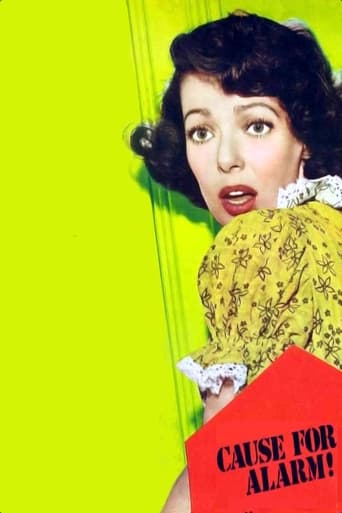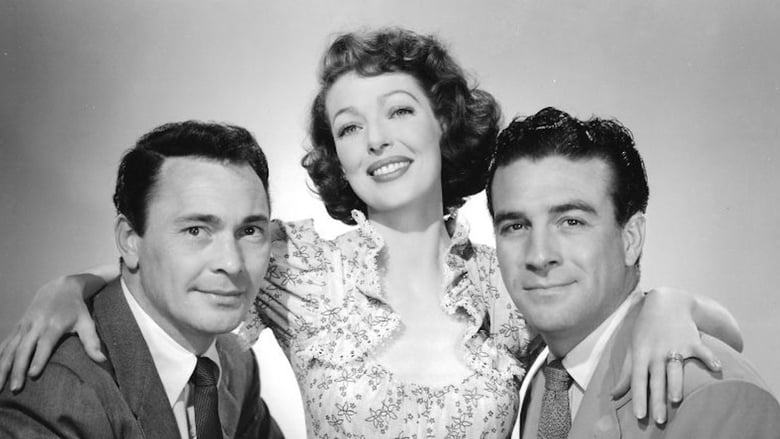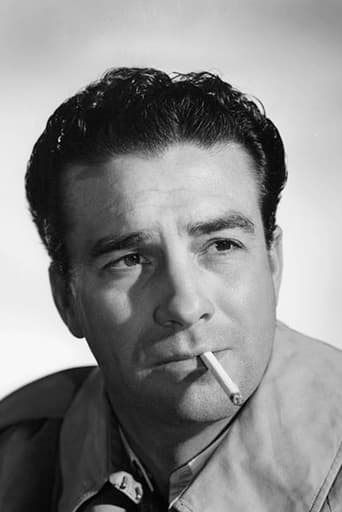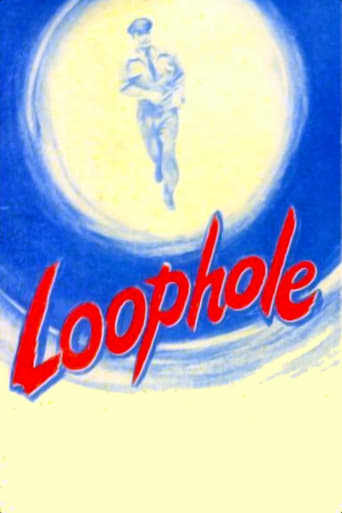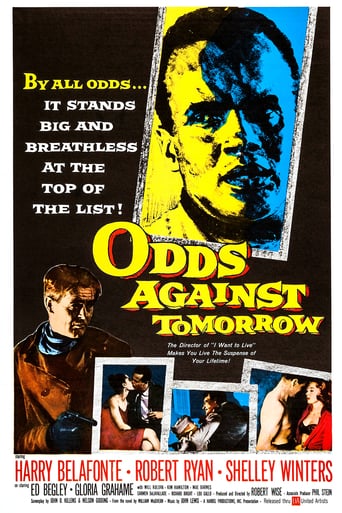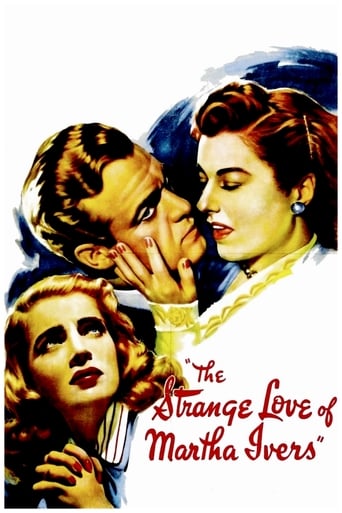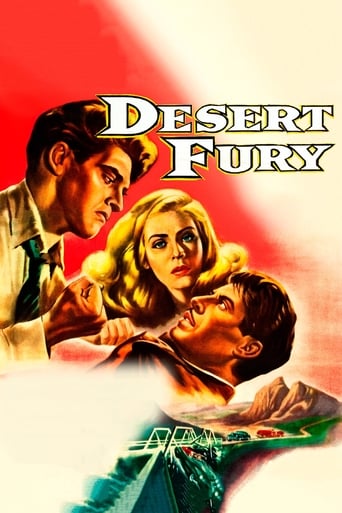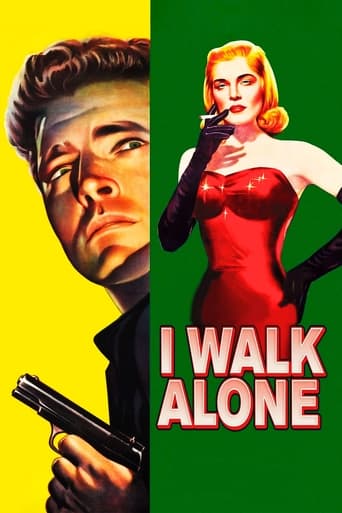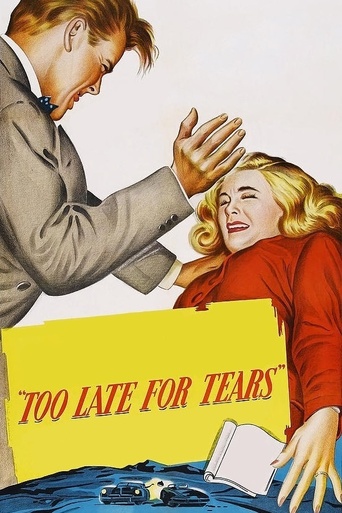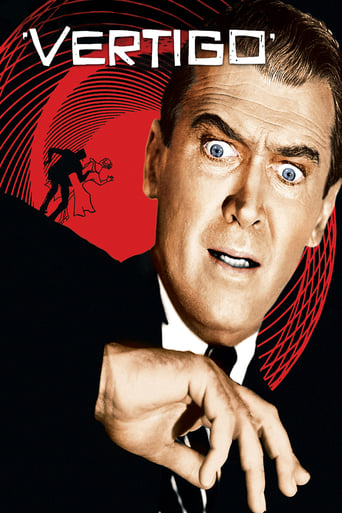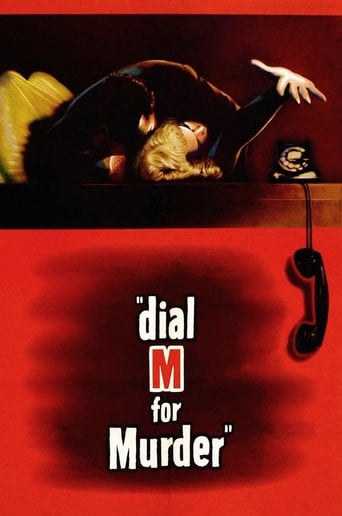Cause for Alarm! (1951)
A bedridden and gravely ill man believes his wife and doctor are conspiring to kill him, and outlines his suspicions in a letter.
Watch Trailer
Cast


Similar titles
Reviews
How sad is this?
The plot isn't so bad, but the pace of storytelling is too slow which makes people bored. Certain moments are so obvious and unnecessary for the main plot. I would've fast-forwarded those moments if it was an online streaming. The ending looks like implying a sequel, not sure if this movie will get one
It’s not bad or unwatchable but despite the amplitude of the spectacle, the end result is underwhelming.
There are moments in this movie where the great movie it could've been peek out... They're fleeting, here, but they're worth savoring, and they happen often enough to make it worth your while.
I've read the other reviews here and they're all completely correct: Cause For Alarm Exclamation Point is corny, contrived, nonsensical and an utter failure as an attempt at a film noir. It is also hilarious.Housewife Loretta Young is taking care of her husband George who is bedridden with a heart condition. He is SO bedridden that the very act of getting out of his bed- even to take a few steps to look out bedroom window- is worthy of comment and concern by neighbors and friends. His other problem? He's clinically insane and paranoid delusional- so much so that he thinks his wife & doctor are working together to try to kill him so they can make off with his insurance money and live together happily ever after. The entire story takes place in one day, in almost real-time, as George writes a letter to the district attorney fingering his wife and doctor should any tragedy ever befall him. Faithful, loving wife Ellen (Loretta Young) mails said letter unaware of its contents and that's where the real fun begins. George tells her what he wrote and then conveniently dies of his magical mystery heart disease, leaving Ellen in frantic pursuit of the incriminating letter. The obstacles she encounters as she tries to get the letter back (nosy neighbors, a meddling Aunt, a neighborhood kid who thinks he's a cowboy) are nothing compared to the ultimate bureaucratic nightmare of suburbia: the post office.Cause For Alarm! is unintentionally hilarious, almost an "Airplane!" take on film noir movies (The Postman Always Whines Twice) and will have you laughing yourself silly at the unbelievable circumstances that have Loretta Young changing clothes and putting on makeup with her dead husband five feet away so she can look presentable in front of the Postmaster. If you're looking for serious, gripping film noir you should look elsewhere, but if you're looking to laugh at a movie that doesn't seem to realize how absurd it is check out this little gem.And don't forget to put proper postage on all your outgoing mail.GRADE: B+
Free from the glamour of her first 25 years in Hollywood, Loretta Young gets to wear minimal make-up and even gets her hair mussed up in this frantic tale of a housewife who finds out that her neurotic bedridden husband (Barry Sullivan) has plotted to accuse her and his best friend of plotting his murder. She accidentally mails a letter to the D.A. which he makes the accusation and later she finds out that he has sinister intentions of his own. This leads her to chase all over town for the overly chatty (yet grumpy) postman, deal with a meddling aunt and little boy neighbor in a cowboy suit with a toy gun that he keeps shooting that makes her more and more nervous. Then, there's the overly watchful neighbor who seems at first like every suburban couple's nightmare (think of a non-comical Gladys Kravitz), spending way too much time watering her lawn.On the surface, this seems like an extended episode of her later T.V. series, but once the plot gets going, you don't really care anymore and are simply just anxious for her to get the letter back. The film spends too much time on this plot development and too much time with Young begging various visitors to leave her husband alone, and after a while, you might want to slug postman Irving Bacon who grumbles about his problems to anyone within earshot and who is a bit too officious. Then, there's the conclusion which in retrospect seems to be the only sensible way to wrap it up, although there are definitely a lot of questions left unanswered.Margalo Gillmore is amusing as the aunt and Georgia Backus keeps a mystery to the character of the neighbor. Carl "Alfalfa" Switzer is on and off so quickly as a mechanic Young questions in regards to the location of the postman that you might not recognize him. This is also surprisingly low budget for both MGM and director Tay Garnett but the neighborhood footage so realistic looking that you wonder if it is indeed shot on the set and not outside the studio somewhere.
This is a nail-biter! Loretta Young is so good in the lead role of an ordinary housewife faced with her life being destroyed, that she evokes the utmost sympathy for her peril. It may be her finest performance on screen. She starts out as a smiling, contented suburban wife who is looking after her husband who is upstairs in bed with a heart condition. The film throughout uses an interior monologue technique for her. And this is where Loretta Young especially excels, for she has perfectly timed her changes of expression to coincide with the passages of narration, and shows more changes of thought and emotion on her face than most actors or actresses could do in such circumstances. Without her ability to make this convincing and moving, the film would have been a miserable failure. The film was thus a risky venture, but it worked beautifully, and the result was the most desperate tension imaginable. The film was directed by Tay Garnett, who is perhaps best known for directing John Garfield and Lana Turner in the noir classic THE POSTMAN ALWAYS RINGS TWICE (1946). After the mid-fifties, Garnett turned to directing for television, including several of the Loretta Young Show episodes. Young's problem in this film evolves dramatically in front of our eyes. Her loving husband, played by Barry Sullivan, has developed a serious mental illness coincidentally with his physical illness. He has developed paranoid fantasies about her carrying on with another man who is a friend of theirs and also their doctor (played by Bruce Cowling). But this has evolved into a potentially violent psychotic state. Until the very last moment, she is blissfully ignorant of his mental condition, which is so far beyond her comprehension. At first she manages to brush aside her husband's accusations of an affair, telling herself he is just under a lot of stress because of his illness. But then he informs her that he has written a long letter to the Los Angeles District Attorney saying that she and the doctor, 'her lover', were conspiring to kill him. Young has innocently posted this fat letter that very day, thinking it was insurance papers of some kind. But when her husband pulls a gun on her and, having locked the door so that she cannot escape from the bedroom, she finally realizes that he really intends to kill her. He struggles to rise from the bed in order to shoot her dead, but before he can pull the trigger, he collapses and dies of a heart attack. She is seized with shock and fear and tries to pull the pistol from his hand, but sets it off and fires a shot into the floor, which is heard outside, but only by a cute little boy on his tricycle playing at being the film cowboy hero Hopalong Cassidy. There are amusing scenes in the film between Young and 'Hoppy', as she calls him (the first credited screen performance, aged 9, by Brad Morrow, credited here as Bradley Mora, his real name). Fortunately the woman next door, who is such an inquisitive neighbour watching all the comings and goings, did not hear the gunshot. Then Young panics and realizes that she and the doctor will be blamed for her husband's death because he claimed they were over-dosing him on his heart medication and plotting to kill him, and they had over-ordered some, as some had been spilled. So she rushes out in a dead sweat to try to persuade the postman to return the letter to her. But he says it is against regulations, although she can go and see the superintendent at the post office if she can get there by 2:30, and he can return the letter to her. Meanwhile, the husband is lying dead at home. Young goes to see the superintendent but he says he can only return the letter if her husband signs a letter requesting it, seeing as he is confined to bed. This poses something of a problem, considering that the husband is not alive anymore, but she cannot tell him that and becomes more and more desperate. She pleads and then demands, and is dismissed by him after he loses his patience entirely. Her dilemma has been made far worse by her husband's aunt coming round and wanting to go upstairs and see him, and a number of other visitors appearing or interfering and delaying her. Young becomes more and more dishevelled and pouring with sweat, running along the streets in the intense summer heat like someone running for her life, which she is. Before our eyes, she turns from a quiet, demure housewife into a desperate, pleading, bullying, insistent vixen fighting for her life. The transformation is so convincing that Young carries us along with her as she disintegrates in front of our eyes and loses all self control. Her outbursts are tempered with interior monologue rebukes to herself telling herself that she must be calm, must be calm. It is all extremely harrowing. The ending is most extraordinary, a touch of genius, but I cannot reveal it. You need strong nerves to watch this desperate tale.
In addition to a really good performance from Loretta Young as the increasingly desperate Ellen Jones, I give great credit to director Tay Garnett for the very effective build-up of suspense, which shifts gears partway through the movie but doesn't miss a beat in doing so. As Ellen, Young is playing a woman trying to nurse her gravely ill husband back to health. Unfortunately, George Jones' poor health has led him to become increasingly paranoid, and he's come to the conclusion that Ellen and his doctor are in love and trying to murder him. Ellen tries her best to "put on a happy face" as she deals with her increasingly difficult spouse, and then discovers that a letter she mailed for him was actually directed to the District Attorney, and accused her and the doctor of planning his murder. (As an added complication, George actually dies after the letter is sent.) The movie then shifts from George's paranoia to Ellen's desperation, as, after George dies, she frantically tries to get the letter back before it reaches the DA, but with every more desperate attempt to get the letter she seems to set herself up as more guilty. Where and how will this end?It's a very well done movie, with a lot of little things that gave it a feel of authenticity: the nosy neighbours, and the neighbourhood kid who pretends to be Hopalong Cassidy showing up at Ellen's house looking for cookies. The opening scenes, explaining how George and Ellen met and their mutual relationship with Dr. Graham, went on perhaps a bit too long. Then, at the end, there is an expected twist (because you always expect a surprise twist in a movie like this) but the expected twist wasn't the twist I was expecting, and it provided a somewhat humorous (and perhaps, therefore, slightly out of place) ending to an overall very enjoyable film.

